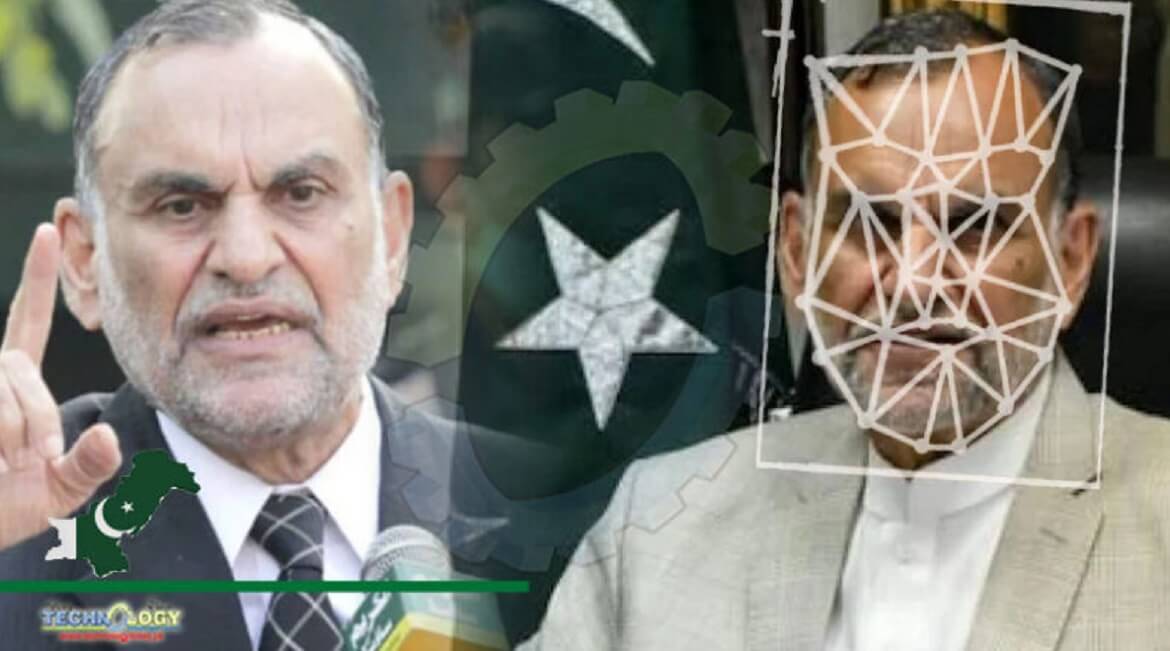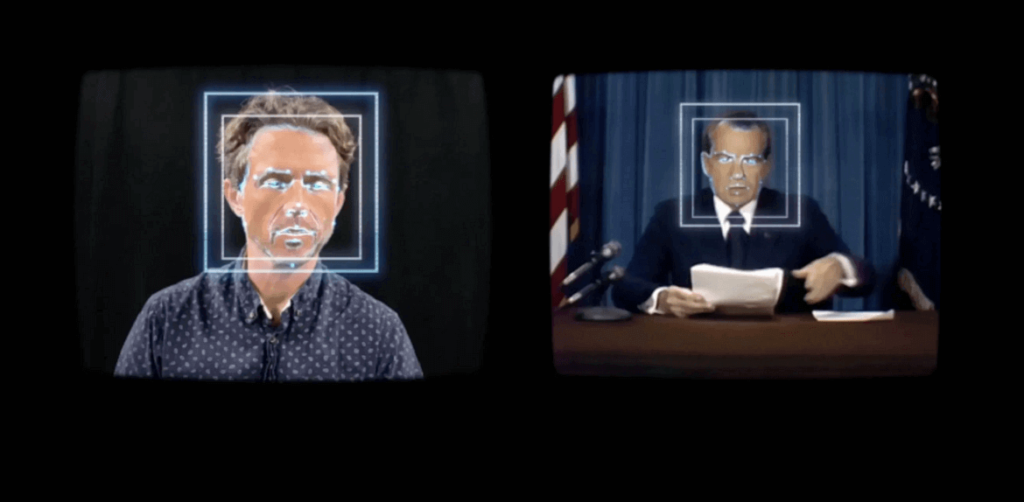“The dual-edged swords in politics battlefield”
By Rana Danish Nisar
The term “Deepfakes” pertains to meticulously crafted fabricated visual or auditory content that leverages artificial intelligence (AI) and machine learning techniques to deceive individuals into seeing them as authentic.

The term under consideration originates from the amalgamation of “deep learning,” a subfield within machine learning, and “fake.” Deepfakes encompass the deliberate alteration of an individual’s visual and/or auditory characteristics in order to fabricate a deceptive representation of their actions or statements that they have not genuinely performed or uttered.
Deepfakes are generated via deep neural networks, a form of machine learning algorithm capable of acquiring intricate patterns from extensive datasets. The procedure entails instructing the neural network by utilizing a substantial quantity of authentic data, such as films and photographs featuring the individual of significance.
Upon completion of the training process, the neural network possesses the capability to generate novel content by manipulating the input data according to preset methods. The utilization of deepfakes for recreational purposes may initially appear harmless; nonetheless, the potential for their malicious application has raised significant concerns among individuals.
These individuals can be utilized to disseminate fabricated or fictitious data, potentially perpetuating misinformation, damaging reputations, and facilitating fraudulent activities and other illicit endeavors. The increasing prevalence of deepfakes has sparked considerable discourse about ethical implications, privacy concerns, and the imperative to develop effective detection and prevention mechanisms to mitigate their potential misuse.
Continual endeavors are currently underway to develop methodologies for detecting and discerning deepfakes, alongside initiatives aimed at enhancing public awareness about their presence and associated hazards. However, the continuous advancement of technology poses a significant challenge in maintaining an edge against individuals who may exploit deepfake technology for malicious purposes.
Politics, which encompasses the study of the tactical and methodical operation of a government, has always shown a penchant for development. Over the course of human history, politics has undergone profound shifts. A number of causes, including ideological shifts, technological development, societal mobilizations, and changes in global dynamics, have contributed to this phenomenon. Changes in political systems have been dramatic over time, from ancient monarchies to modern democracies.
The development of such structures has allowed for the efficient handling of a wide variety of problems on both the domestic and international fronts. This realization emphasizes the need for government responsiveness to society demands while also highlighting the incredible capacity of individuals to adapt to new conditions. Ideologies in politics are the bedrock upon which any given political system is built.
These ideologies have evolved over time, giving rise to new paradigms that shape public policy, institutional structures, and cultural norms. There has been a proliferation of many political and philosophical stances across the political spectrum, from liberalism and conservatism to socialism, communism, and beyond. People’s ideas about human rights, economic equality, and social justice have changed, and this shift reflects that. Significant shifts in the conduct of political processes have resulted from the arrival of the digital age.
Political campaigns, public involvement, and information dissemination have all undergone profound changes as a result of the proliferation of social media, digital communication, and data analytics. Increased transparency, engagement, and mobilization have emerged from the aforementioned shift in power dynamics, which has benefited both governments and citizens. The level of global connectivity in modern life is unprecedented.
As a result of this tendency, the lines between domestic and international politics have become increasingly porous. Urgent global concerns such as climate change, terrorism, and economic interdependence require concerted international cooperation to find answers that go beyond the frameworks of individual nations. The rise of multinational organizations, treaties, and alliances has altered the nature of international cooperation and the methods used to tackle global problems. Over time, many different points of view have been added to the concept of portrayal. The concept of “identity politics” has garnered significant attention, underscoring the significance of acknowledging and rectifying historical and cultural disparities.
Marginalized communities assert their entitlements and acknowledgment, hence compelling governmental institutions to adopt a more inclusive and receptive stance in addressing these issues. The recognition of environmental challenges necessitated a shift in political objectives. Topics such as sustainability, resource depletion, and climate change have emerged to the forefront of political debate.
Changes in legislation, the creation of international accords like the Paris Agreement, and a heightened focus on incorporating responsible environmental management into political agendas are all direct results of these trends. Political norms have been shaken by the rise of populist movements and a loss of faith in long-standing institutions. A rising desire among individuals to participate in and have an impact on decision-making processes has driven the introduction of participatory democracy, referendums, and citizen forums.
The current COVID-19 outbreak, and other emergency situations, have highlighted the importance of adaptive governance. Rapid policy adjustments, decision-making based on data, and more international cooperation are all necessary to effectively deal with unforeseen issues. The advocacy for human rights and social justice has precipitated governmental transformations. Social collectives advocating for equality, LGBTQ+ rights, gender equity, and racial justice have exerted a substantial influence on policy agendas, prompting a reevaluation of deeply entrenched societal conventions.
The key components in addressing these changes are effective leadership and an educated citizenry. The flexibility of leaders is crucial in effectively managing diverse groups and adapting to dynamic circumstances. In order to ensure accountability of leaders and meaningful participation in the political process, it is imperative for citizens to actively engage in the political sphere. This ensures that the government remains connected to the values of society and faithfully represents them. In summary, the evolution of politics is a continuous and dynamic process influenced by a multitude of causes. In response to societal transformations, it becomes imperative for governmental systems to adapt in order to effectively address the evolving demands and desires of their citizenry.
The aforementioned transformation can be facilitated by the embracement of change, the advancement of diversity, and the commitment to fundamental democratic principles. This will ensure that politics remains a mechanism for advancing society within an ever-evolving reality.
Politics serves as a mechanism through which individuals’ interests are manifested and societal structures are molded within the domain of governance and authority. Beneath the veneer of idealistic rhetoric and discussions surrounding ideals, there exists a concealed aspect sometimes referred to as “unethical political practices.” This phrase encompasses a broad spectrum of immoral and deceitful strategies employed by legislators to gain an advantage, frequently at the detriment of truth, transparency, and the collective welfare.
Character assassination is a widely recognized strategy employed by politicians to detrimentally impact the public perception and reputation of their adversaries. This is achieved by the utilization of unfounded accusations, the dissemination of unsubstantiated claims, and the deliberate omission of crucial information. This phenomenon not only diverts individuals’ focus from significant matters, but also undermines public trust in the governmental apparatus.
The field of politics frequently use deceptive information and fabricated news in order to manipulate public sentiment. The deliberate manipulation of information has the potential to induce confusion, reinforce pre existing prejudices, and undermine critical thinking, contributing to an electorate that lacks adequate knowledge and awareness. Smear campaigns are employed by politicians as a strategic maneuver. These campaigns mostly center their attention on the vulnerabilities, errors, or personal affairs of their adversaries.
The tendency of individuals to prioritize negative aspects above policy matters poses a significant challenge in engaging in meaningful discussions regarding crucial topics. Politicians may employ strategic measures to suppress voter turnout, such as establishing logistical barriers to accessing polling locations or engaging in voter roll purges, with the intention of influencing electoral outcomes. Gerrymandering refers to a strategic practice wherein the boundaries of voting districts are altered with the intention of providing an advantage to a particular political party. This stance contradicts the principle of equal opportunity for all individuals to participate in the electoral process.
Politicians have the ability to evoke emotions and garner public support by capitalizing on individuals’ apprehensions and biases rooted in religious, racial, or other distinguishing characteristics. Engaging in unethical practices within the realm of politics yields numerous adverse consequences. The erosion of public trust in the political system and elected representatives occurs when individuals observe instances of unethical conduct inside the realm of politics. This phenomenon engenders a diminished sense of interest in the democratic process and subsequently reduces the likelihood of individuals actively engaging in it. The absence of substantive policy discussions can impede the advancement of critical issues and hinder societies’ ability to address unresolved challenges. When politicians engage in unethical behavior, it has the potential to exacerbate societal differences and foster divergent perspectives, impeding collective efforts towards collaboration and cooperation.
The prioritization of personal interests by political leaders over the well-being of their respective nations can adversely impact the legitimacy of these nations within the global arena. This phenomenon has the potential to negatively impact international relations and provide challenges to collaborative efforts among nations. The acquisition of skills in media literacy enables individuals to discern veracity from falsehood, hence mitigating the influence of deceptive narratives.
Enhancing transparency in campaign financing, policy formulation, and governance has the potential to mitigate unethical conduct by facilitating public matters, but also undermines public trust in the governmental apparatus. The field of politics frequently use deceptive information and fabricated news in order to manipulate public sentiment. The deliberate manipulation of information has the potential to induce confusion, reinforce pre existing prejudices, and undermine critical thinking, contributing to an electorate that lacks adequate knowledge and awareness.
Smear campaigns are employed by politicians as a strategic maneuver. These campaigns mostly center their attention on the vulnerabilities, errors, or personal affairs of their adversaries. The tendency of individuals to prioritize negative aspects above policy matters poses a significant challenge in engaging in meaningful discussions regarding crucial topics. Politicians may employ strategic measures to suppress voter turnout, such as establishing logistical barriers to accessing polling locations or engaging in voter roll purges, with the intention of influencing electoral outcomes.
Gerrymandering refers to a strategic practice wherein the boundaries of voting districts are altered with the intention of providing an advantage to a particular political party. This stance contradicts the principle of equal opportunity for all individuals to participate in the electoral process. Politicians has the ability to evoke emotions and garner public support by capitalizing on individuals’ apprehensions and biases rooted in religious, racial, or other distinguishing characteristics. Engaging in unethical practices within the realm of politics yields numerous adverse consequences. The erosion of public trust in the political system and elected representatives occurs when individuals observe instances of unethical conduct inside the realm of politics. This phenomenon engenders a diminished sense of interest in the democratic process and subsequently reduces the likelihood of individuals actively engaging in it.
The absence of substantive policy discussions can impede the advancement of critical issues and hinder societies’ ability to address unresolved challenges. When politicians engage in unethical behavior, it has the potential to exacerbate societal differences and foster divergent perspectives, impeding collective efforts towards collaboration and cooperation.
The prioritization of personal interests by political leaders over the well-being of their respective nations can adversely impact the legitimacy of these nations within the global arena. This phenomenon has the potential to negatively impact international relations and provide challenges to collaborative efforts among nations.
The acquisition of skills in media literacy enables individuals to discern veracity from falsehood, hence mitigating the influence of deceptive narratives. Enhancing transparency in campaign financing, policy formulation, and governance has the potential to mitigate unethical conduct by facilitating public and maintaining the principles of unrestricted expression, given the challenges presented by deepfakes in the realm of political manipulation.
Case study of Pakistan

As previously mentioned, the term “Deepfakes” pertains to fabricated content, particularly in the form of manipulated films, which have undergone alterations through the utilization of artificial intelligence techniques that integrate the principles of “deep learning” and “falsification.” In contemporary times, significant advancements in technology have engendered apprehensions over its potential for misuse, particularly within the realm of politics.
The political landscape in Pakistan has undergone transformations because of the rapid advancements in deepfake technology. The utilization of modified films possesses the capacity to disrupt political campaigns, alter individuals’ sentiments, and even instigate a societal upheaval. It has also the potential to induce disarray and ambiguity within political discourse through the replication of politicians or manipulation of their statements.
The utilization of deepfakes has many implications for the political landscape of Pakistan. Altered videos have the potential to disseminate misleading content, undermining the legitimacy of political candidates and organizations. Consequently, individuals may experience a decline in their confidence in the political system, potentially resulting in a voter who harbors skepticism towards the field of politics. Deepfakes possess the capacity to significantly influence individuals’ emotional responses by creating the illusion that political figures endorse concepts or utterances that they did not genuinely endorse.
The potential consequence of individuals casting their votes on erroneous or insufficient information could exacerbate the pre-existing disparities and conflicts among voters. The pervasive utilization of social media platforms facilitates the dissemination of these manipulated films, hence enhancing their efficacy as instruments of deceit. The utilization of deepfakes may introduce challenges in attributing responsibility to individuals.
Deepfakes have the potential to undermine the credibility of authentic films depicting lawmakers engaging in unethical behavior. This would provide individuals who have been accused of engaging in inappropriate conduct an opportunity to present their defense. This type of conduct potentially impedes the administration of justice and fosters a perception among government officials that they are immune from accountability.
The difficulty in detecting deepfakes arises from their intricate and multifaceted nature. As advancements in technology continue to enhance the instruments employed in content creation, discerning between authentic content and modified information becomes increasingly challenging. The efficacy of conventional fact-checking techniques may prove insufficient in detecting intricate deepfakes, hence potentially compromising the dissemination of accurate information.
Within the realm of Potential Countermeasures, it is of utmost significance to develop artificial intelligence (AI) systems that have sufficient intelligence to detect and identify deepfake content. Educators have the ability to establish databases including authentic films and employ machine learning techniques to identify and examine trends within altered material. Facilitating individuals’ acquisition of media literacy skills holds significant importance.
Disseminating knowledge on the presence of deepfakes and their potential ramifications can facilitate the cultivation of individuals’ critical thinking abilities, enabling them to discern the veracity and dependability of encountered material. The implementation of robust authentication methods for videos disseminated by political actors holds significant promise for enhancing transparency and bolstering legitimacy on a substantial scale. Governments may consider implementing legislation and regulations with the objective of mitigating the creation and dissemination of deepfakes by individuals with malicious intent.
However, it is crucial to strike a harmonious equilibrium between these factors while simultaneously upholding individuals’ freedom of expression. Enhanced collaboration and synergy among technology enterprises, governmental entities, and civil society stakeholders can facilitate the identification and eradication of deepfake content on digital platforms. The proliferation of deepfakes poses a significant challenge to the political landscape of Pakistan due to their inherent difficulty in detection.
The imperative to take action arises from the capacity to disseminate misinformation, manipulate public sentiment, and erode democratic principles. Pakistan can endeavor to mitigate the adverse consequences of deepfakes and safeguard the integrity of its political discourse by allocating resources towards technological advancements, educational initiatives, and legislative measures.
Author: Rana Danish Nisar – International Independent Security, Defense, Military, contemporary warfare and Digital-International Relations analyst.
(The views expressed in this article belong only to the author and do not necessarily reflect the views of World Geostrategic Insights)
Image Credit: MIT Open Learning







